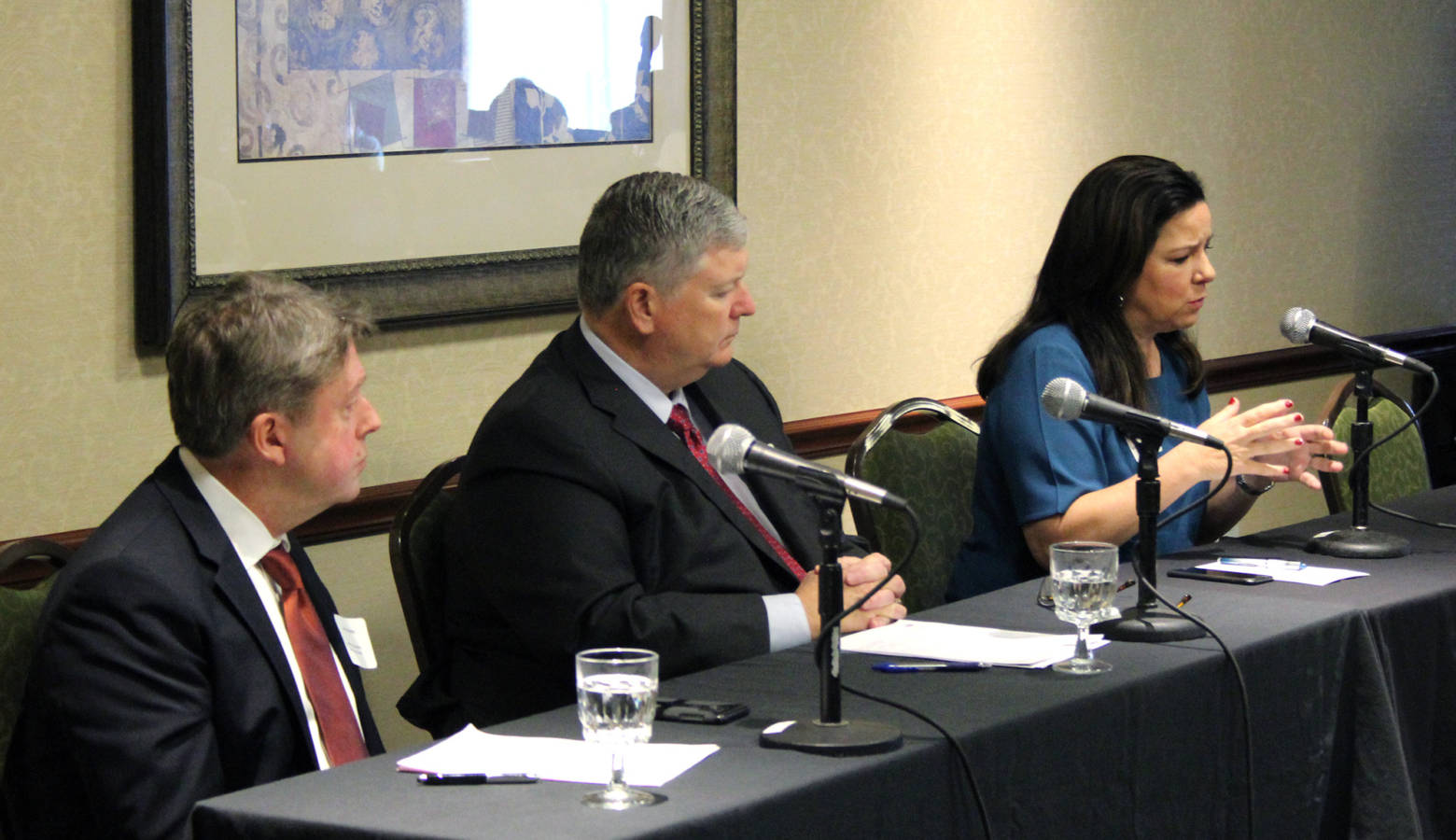Indiana Businesses Voice Concerns About Current Tariffs

Current tariff and trade policies from the White House are leaving small-to-midsize businesses swallowing some of the extra costs.
The Indiana Manufacturers Association brought industry experts, business leaders and federal government representatives together Wednesday to discuss impacts the policies are having on Indiana companies.
Months after President Donald Trump’s first round of tariffs went into effect, businesses are trying to figure out how to plan operations going forward. IMA President and CEO Brian Burton says the uncertainty surrounding international trade makes it challenging for Hoosiers to make investment decisions.
“We’ve always said the predictability and certainty creates an environment for investment and investment creates jobs,” says Burton. “Well, we’re running short on predictability and certainty at this point.”
David Dwight is general manager of Warren County-based Tru-Flex, which makes flexible metal hoses. He says his company operates on annual contracts with larger companies, so maintaining a stable profit margin will be tough.
“The small business really pays the toll on this, because the small business doesn’t have the leverage against the large business, and the large business essentially says, well, you’re going to have to eat it, and so that’s what we’re going to have to do,” Dwight says.
International Trade Administration Director of Policy Joseph Laroski defended Trump’s trade policy decisions to attendees. When asked why countries other than China are tariffed for importing steel to the U.S., Laroski says the policy protects domestic production.
“The decision to impose duties under the Section 232 investigation is a national security decision,” says Laroski.
But Dwight isn’t fully buying it.
“A lot of the rhetoric about the trade policy is all about China, China, China. And from the legal standpoint, the steel tariff is really supposed to be about the defense needs, but yet it’s then supported with being China bashing,” he says. “So I’m trying to draw conclusions for what is really driving it.”
Dwight says his company buys steel domestically and some from India that’s specialized, which also has import tariffs placed on it, costing his company more for needed materials.
“We’re suffering from this even though the supposed benefits are to try and change China’s behavior,” says Dwight. “So I’m paying for something that I don’t benefit from.”
World Trade Center Indianapolis President Doris Anne Sadler says if current tariffs continue into next year, businesses might have to scale back production.
“If it holds on much longer, we could actually start seeing some job reductions,” says Sadler.
Indiana Small Business Development Center Export Advisor Andrew Reinke says the costs are being felt disproportionately by smaller operations.
“Larger companies have facilities in some of those countries,” says Reinke. “Larger companies have staff to spend to navigate those tariff and non-tariff barrier hikes. Small companies don’t.”
While a few are optimistic some of the trade disputes can be resolved, Burton says it is not a universal policy solution.
“You have to get to a policy that’s free and fair,” he says. “But the problem is, every country has its own definition of what’s free and fair.”
Even if the tariffs were to go away by the end of 2018, Sadler says there will be lasting impacts.
“There are a lot of long-term impacts that aren’t necessarily quantifiable in terms of dollars,” she says. “There’s ill-will both with our good trading partners and our allies in Europe and Canada and Mexico, and also residual ill-will as it moves forward from China and some of the Southeast Asian counterparts. And let’s not forget, when we lose an industry – soybeans, for instance, goes to Brazil – it’s very difficult to get all of that back.”
Manufacturing makes up about 30 percent of Indiana’s gross domestic profit.
The event was organized by the Indiana Manufacturers Association and Purdue University’s Manufacturing Extension Partnership.
